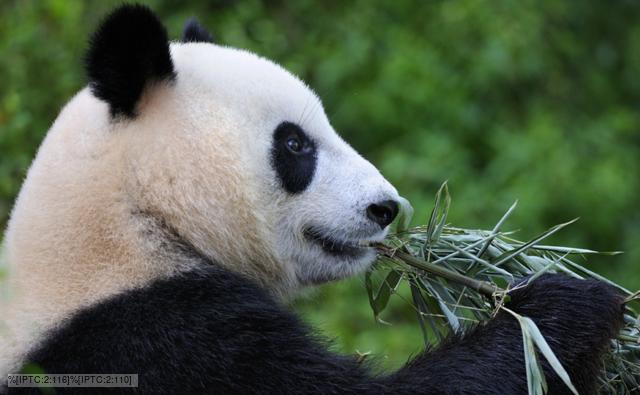Hello Year 3 to help us with the work we have been doing on reports, read this report about Pandas and then talk about the features of a report it has.
The Giant Panda
Appearance
The
Giant Panda is about 1.2-1.5 meters in length and weighs 300lb (136kg). They
have a thick coat of black and white hair and are probably one of the most
recognizable animals with a white body and head. After the Sloth Bear the Giant
Panda has the longest tail in the Bear family measuring at 4-6 inches long.
Diet
 Wild
Giant Panda’s diet is almost exclusively (99%) bamboo. The balance consists of
other grasses and occasional small rodents or musk deer fawns. In zoos, Giant
Pandas eat bamboo, sugar cane, rich gruel, a special high-fiber biscuit,
carrots, apples and sweet potatoes.
Wild
Giant Panda’s diet is almost exclusively (99%) bamboo. The balance consists of
other grasses and occasional small rodents or musk deer fawns. In zoos, Giant
Pandas eat bamboo, sugar cane, rich gruel, a special high-fiber biscuit,
carrots, apples and sweet potatoes.
Habitat
Giant
Pandas are found only in the bamboo forests in the mountains of
central Peoples Republic of China, including the provinces of Gansu, Shaanxi,
and Sichuan. Pandas are usually found in the mountains at about 3000 meters
above sea level. In the winter they sometimes make their way down to about 800
meters. They do not make a permanent den, but take shelter in any suitable
cavity in trees or rock crevices. They do not hibernate, but instead come down
to lower elevations where it is warmer and more food is available. Pandas live
mainly on the ground, but are able to climb. They feed mainly on bamboo, but
also eat other plants and small animals.
BEHAVIOUR
Giant pandas
sleep hidden away inside caves and dens which may be a hollow at the bottom of
a large tree trunk.
Giant
Pandas are solitary animals; they spend their lives alone, except during mating
seasons or when females rear their young. Giant Pandas live in well defined
territories.
 Giant pandas
will urinate or scent mark on trees to warn others of their presence in the
territory. They will also vocalize, producing sounds such as roaring or
bleating (a similar to that of a domestic goat), to convey to the others their
intentions. Panda cubs produce high pitched wailing to attract their mothers'
attention for care and nursing. Giant Pandas are very vocal during mating
seasons to attract each other. The females will produce sounds that are not
heard at other time of the year.
Giant pandas
will urinate or scent mark on trees to warn others of their presence in the
territory. They will also vocalize, producing sounds such as roaring or
bleating (a similar to that of a domestic goat), to convey to the others their
intentions. Panda cubs produce high pitched wailing to attract their mothers'
attention for care and nursing. Giant Pandas are very vocal during mating
seasons to attract each other. The females will produce sounds that are not
heard at other time of the year.
Over all the
species of a Giant Panda is an endangered creature.

It has a heding.
ReplyDeleteIt has lots of subhedings like bihevior and habitat.
It has 3 picturs.
It dos not have diagrams.
It dos not hav labels.
It dosent have captions.
It dosent have opinions.
It dose have Technical words like ailorupoda melanoleuca.
He used paregrafs.
He did not use the sam sentensis avery time.
He did not use ,i,we,and,think
1. this report has a heading
ReplyDelete2. this report has subhedings
3. this report has pictures
4.this report has lots of facts
5. this report has technicals words
6. this report has paragraphs
beginnings
7. this report has varied sentence
i like this report so much and i learned so much from this report
I undursu wat he rightid.
ReplyDeleteIt has a heading and that is the giant panda.the report has subheadings for example:Habitat or diet.It has 3 pictures of pandas.That doesn't have any diagrams.It also doesn't have any labels.Also no captions.It has only facts, no opinions.That report has quiet much technical words.It has so much paragraphs that I can't do that.It has loads of different sentence beginners.It doesn't have words like "I" "we" and "think".
ReplyDeleteI liked this report very much Matthew.
1.You are a good boy you have heading because if you will not have a headings no one will no what your roport is about.
ReplyDelete2.Good you have a subheading.
3.You have pictures of pandas.
4. You dont have diagrams but that doesent mater.
5. You dont have any lables you dont need them.
6.You dont have captions.
7.
It has a heading like The giant panda.
ReplyDeleteIt has a subheading
It has pictures.
It doesn't have diag rams.
It doesn't have labels.
It doesn't have captions.
Your subheadings were super.
ReplyDeleteThe heading is pretty good .
The pictures were super.
a great heding epic yes
ReplyDeletelots of intresting subhedings yes
all difrent pictures
lots and lots diagrams yes
labeles no
captions no
facts not opinions yes
This is fantastik loc of sub hedings it is super fantastik
ReplyDeleteI just laikit I dont just liket I luvit nais report its veri veri gud I luvit
nice daigrams it is fantastik it is not just fantastik it is
super fantastik loc off sub hedings
The report has a heading and subheadings. And, it has pictures. But, there are no diagrams, captions or labels. It has facts, but no opinions.
ReplyDeleteBut, the report doesn't have any facts for endangered creature.